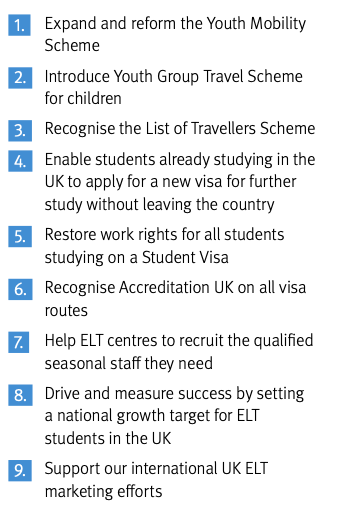Demand for UK language courses – surging or waning?
The UK’s place as a destination market for English language courses has been in flux for a while – to say the least.
Since the country left the European Union, Ireland and Malta have especially capitalised on the UK’s waning popularity amongst European source markets in the years directly following the vote.
However, a global pandemic saw a drastic shrinkage of the sector – wherever one looked, not just in the UK.
Emerging from Covid, while 2022 was still a difficult year for English language schools and agents alike, a light was beginning to appear at the end of the tunnel.
Now, it seems, that light is growing brighter for the UK as a destination market.
Speaking with The PIE at the IALC workshop, which brings together both schools and agents to network and establish partnerships, Audrey Montali – who runs the Indirizzo Inghilterra agency in Italy, sending hundreds of students abroad a year – says it still has that Midas touch.
“The UK is probably my biggest market – despite Brexit, there is the variety of courses; the nationality mix; the relative ease of finding accommodation – these are real attractions.
“There’s also really thoughtful content within the courses,” she tells the PIE.
She is not alone. Claudia Herrmann, an agent with GLS Sprachenzentrum in Berlin, says the diversity of programs available in the UK will ensure it is always a key player.
“The UK is currently the most popular destination for our students for language courses because there’s plenty of choice”, says Herrmann.
For Germany though, a crux lies in the data.
Specifically in the adult sector, the UK as a destination market now only accounts for just over 12.5% of students – this is according to newly released data from the German Association of Language Tour Operators, or FDSV.
Crucially, it lies eight percentage points below that of Malta.
It is important to note, however, that this includes all language courses – not just English. However, it still remains the most desired language to learn in the German outbound market.
In addition, it is still overall the most popular destination – with 35% of the market share.
“I had to diversify my portfolio”
However, at least for Germany, long-distance destinations may well make a comeback.
“The association is forecasting increased demand for long-distance travel in 2023, particularly for Australia and New Zealand,” the report reads.
Back at IALC, the PIE spoke with Christine Bonneux, running the I Love Lingua agency based in France, who before Covid specialised in Australian study travel.
“It didn’t turn out to be a good choice because of course, they were completely closed – so I had to diversify my portfolio.
“Before Covid, I would have taken 70 students just to Australia – this year, only a third of that have gone,” she says.
“However, it is showing a lot of interest again – so I already know now that in the summer of 2024 I will have double the amount of French students going there,” she predicts.
While junior demand seems to still be in place – it still retains 50% of Germany’s market share, according to FDSV – there has been ever-growing contempt in the sector due to the ongoing issues with group passports for the UK.
One French school teacher described a “Kafkaesque” situation in which because three children out of 40 didn’t have EU passports, their individual visas (which they had to apply for due to Brexit rules) were rejected and not allowed to appeal, sending the school’s trip into disarray.
Bonneux’s portfolio diversification is leading her to look harder at the UK.
“French people are indeed ready again [for the UK]”
“Opening up to the UK hasn’t really been possible so far, because in France we have the problem with the delay for passports – and those who don’t have one can’t go to England, of course.
“However, French people are indeed ready again [for the UK]. They’ve been frustrated, they’ve been unhappy, but now they want to go back,” she affirms.
While it seems people are more than ready to go to the UK, the problem is getting there – which could still hurt the appetite.
On that measure, English UK has recently released nine “asks” to the country’s government, hoping to regain the UK’s position as a top ELT destination.
“Our language schools are resilient and innovative, but UK ELT is competing with one hand tied behind its back,” the paper reads.
Will that hand be untied? It remains to be seen – the paper will officially be launched to government on May 11, so what they may do in response will be watched closely.
Until then, the UK ELT sector must dig in its feet if it is to claw back lost time – but people are ready to return.
The post Demand for UK language courses – surging or waning? appeared first on The PIE News.



